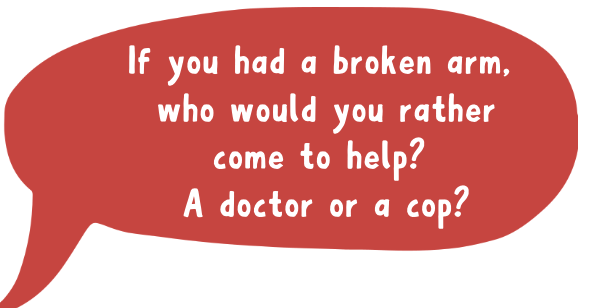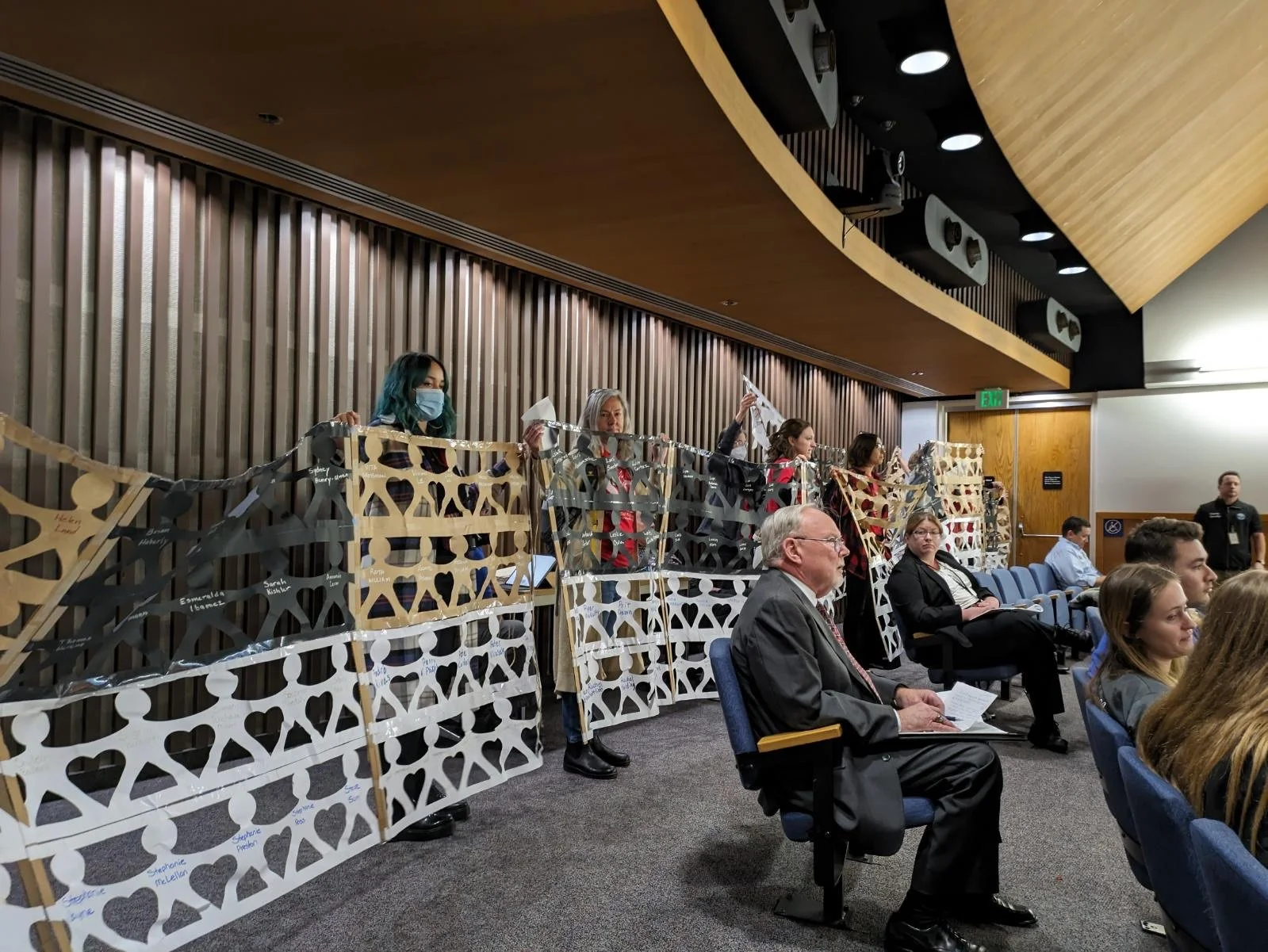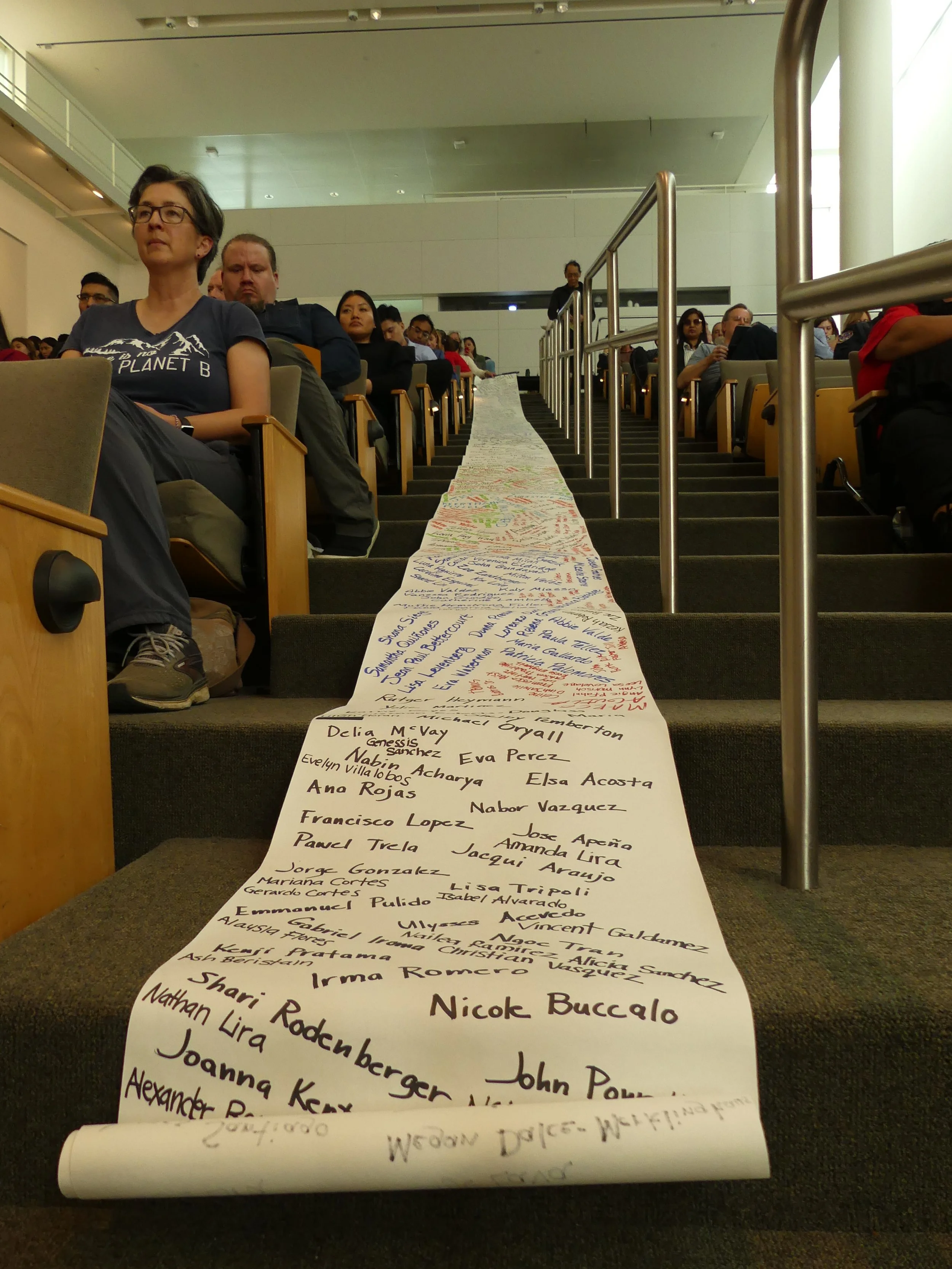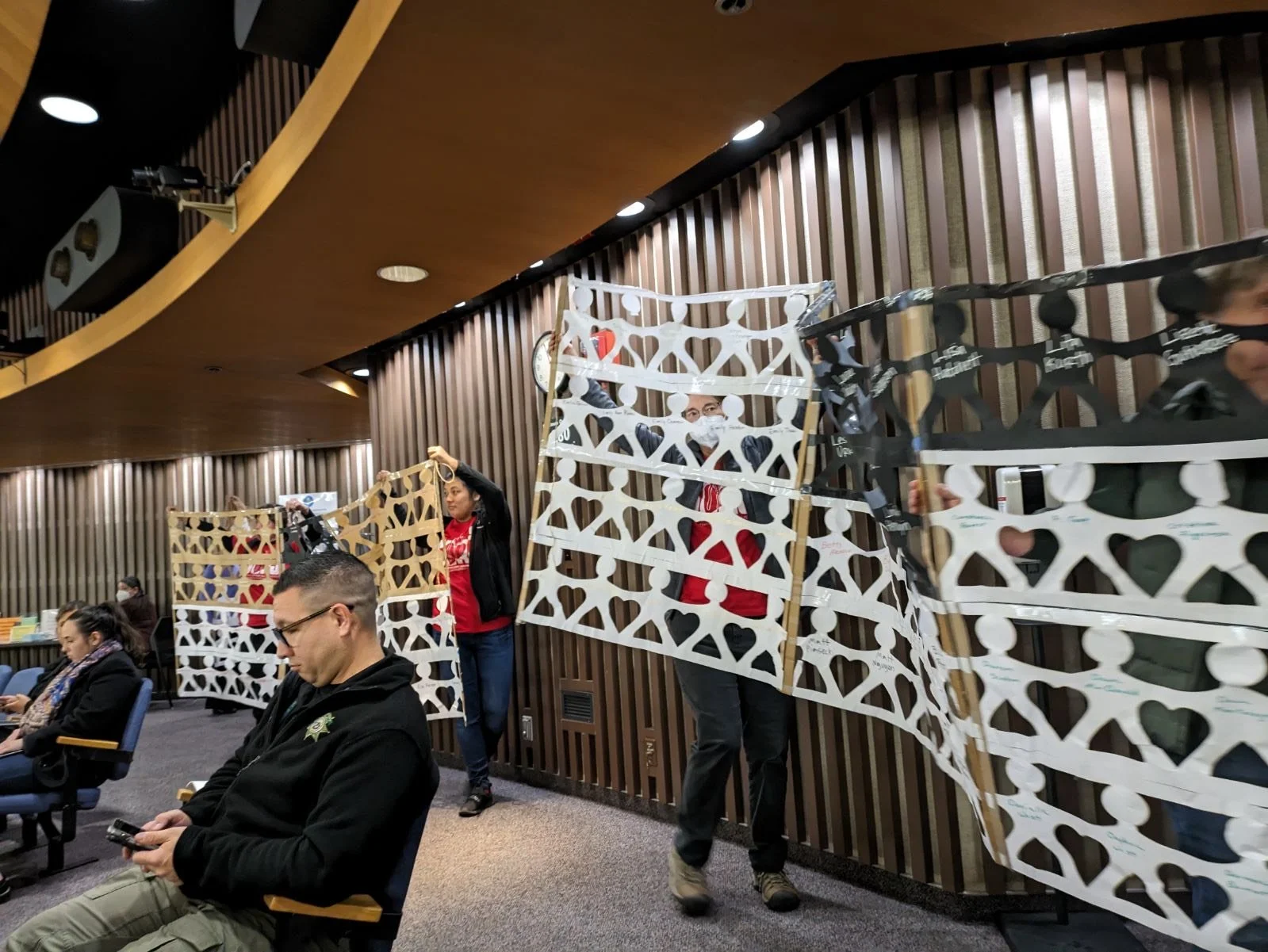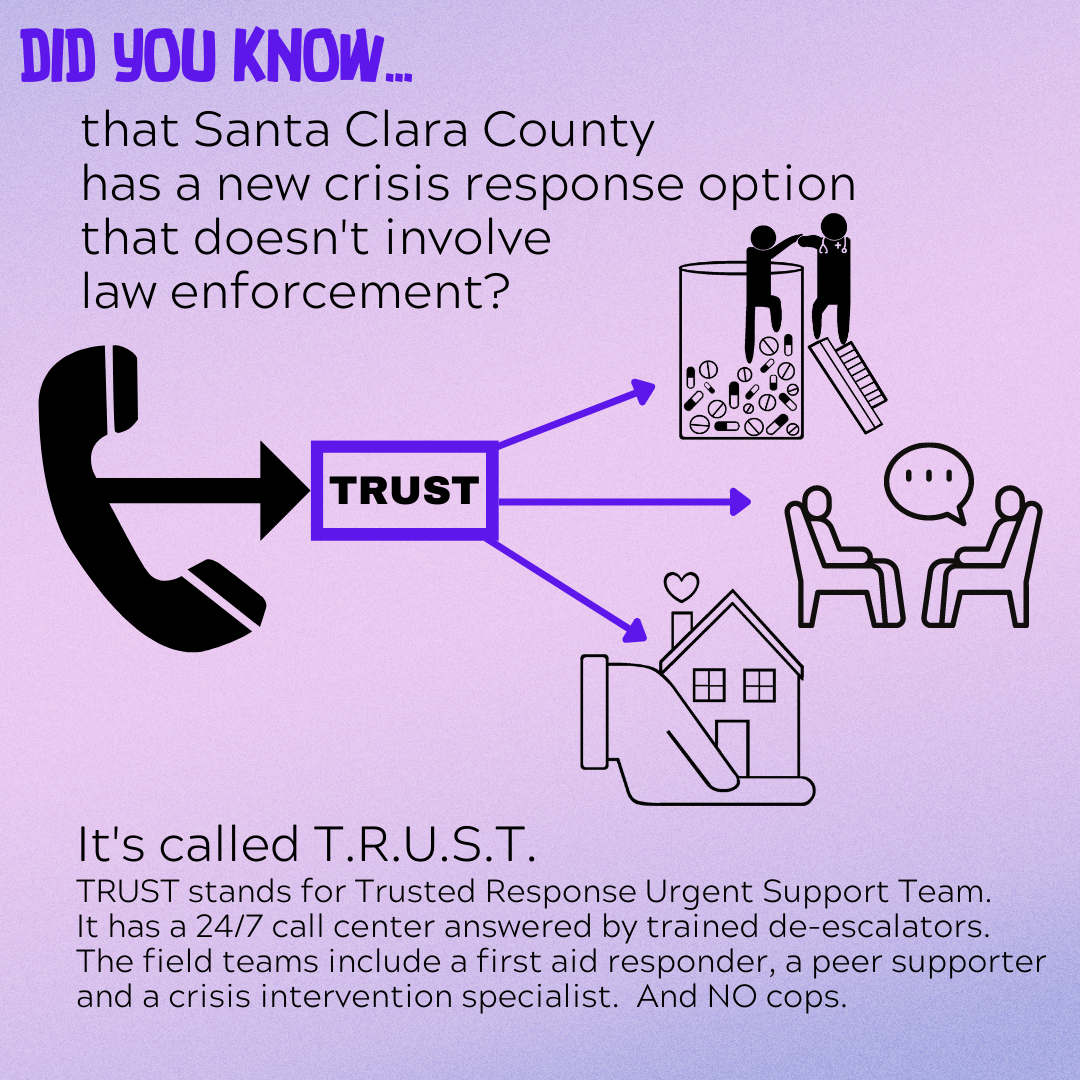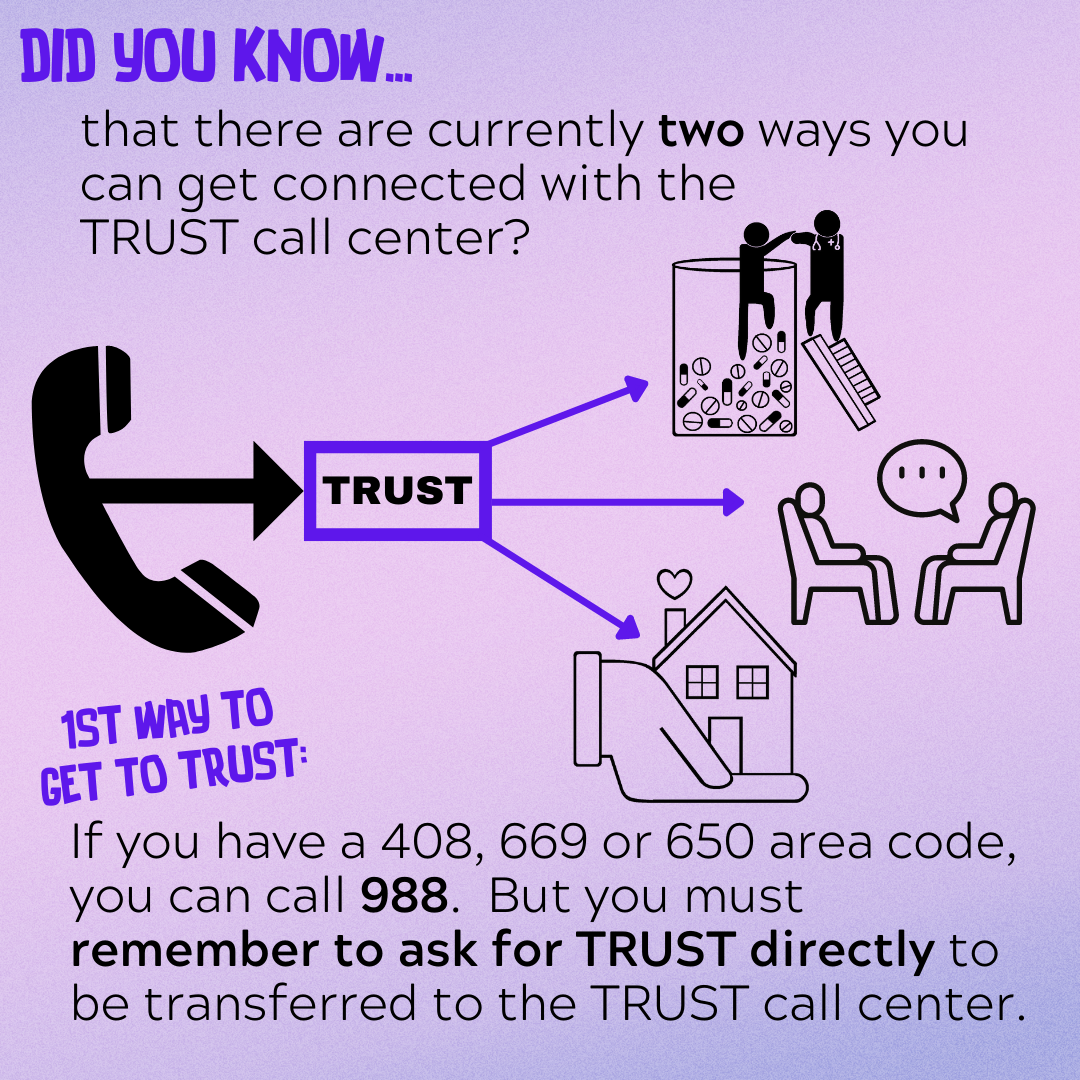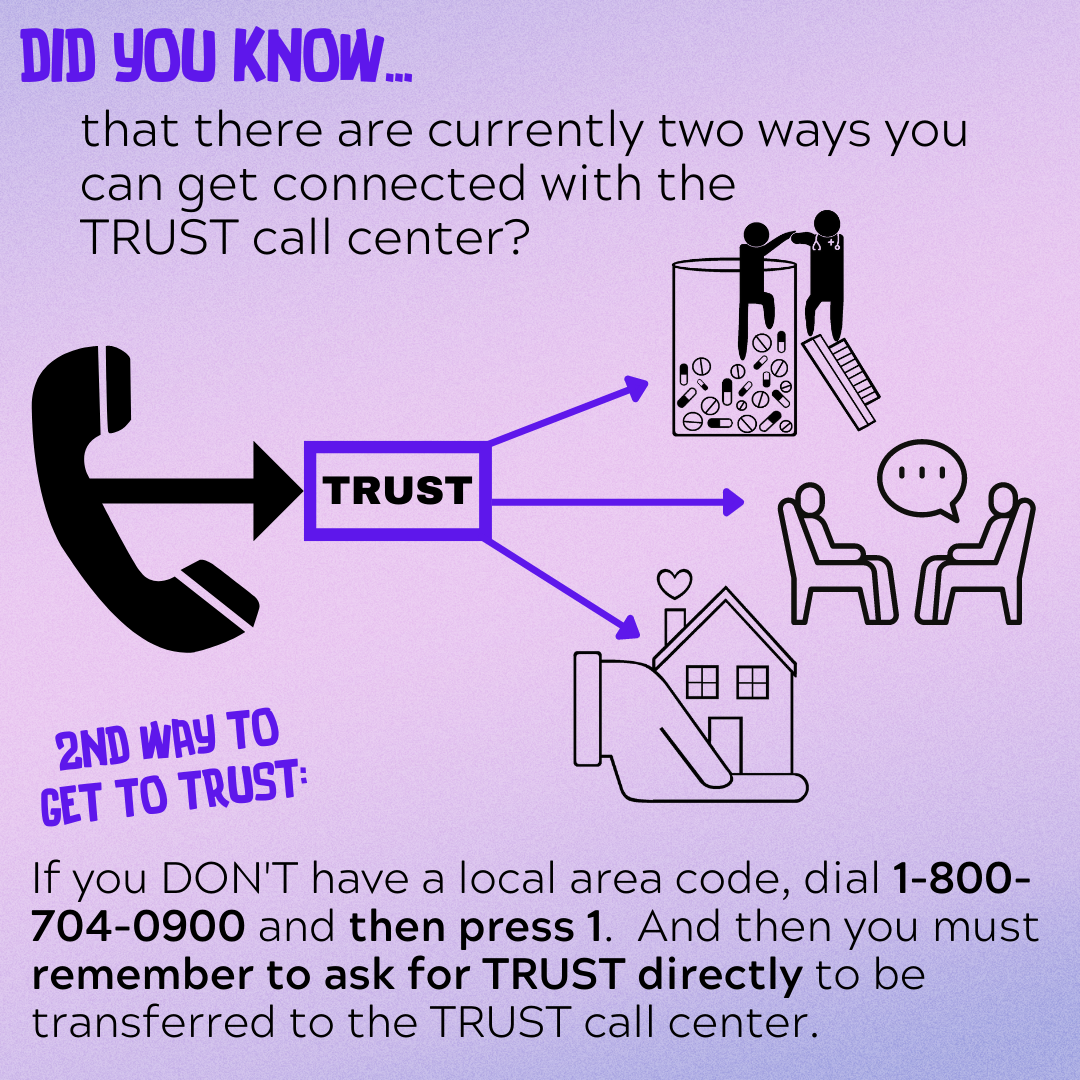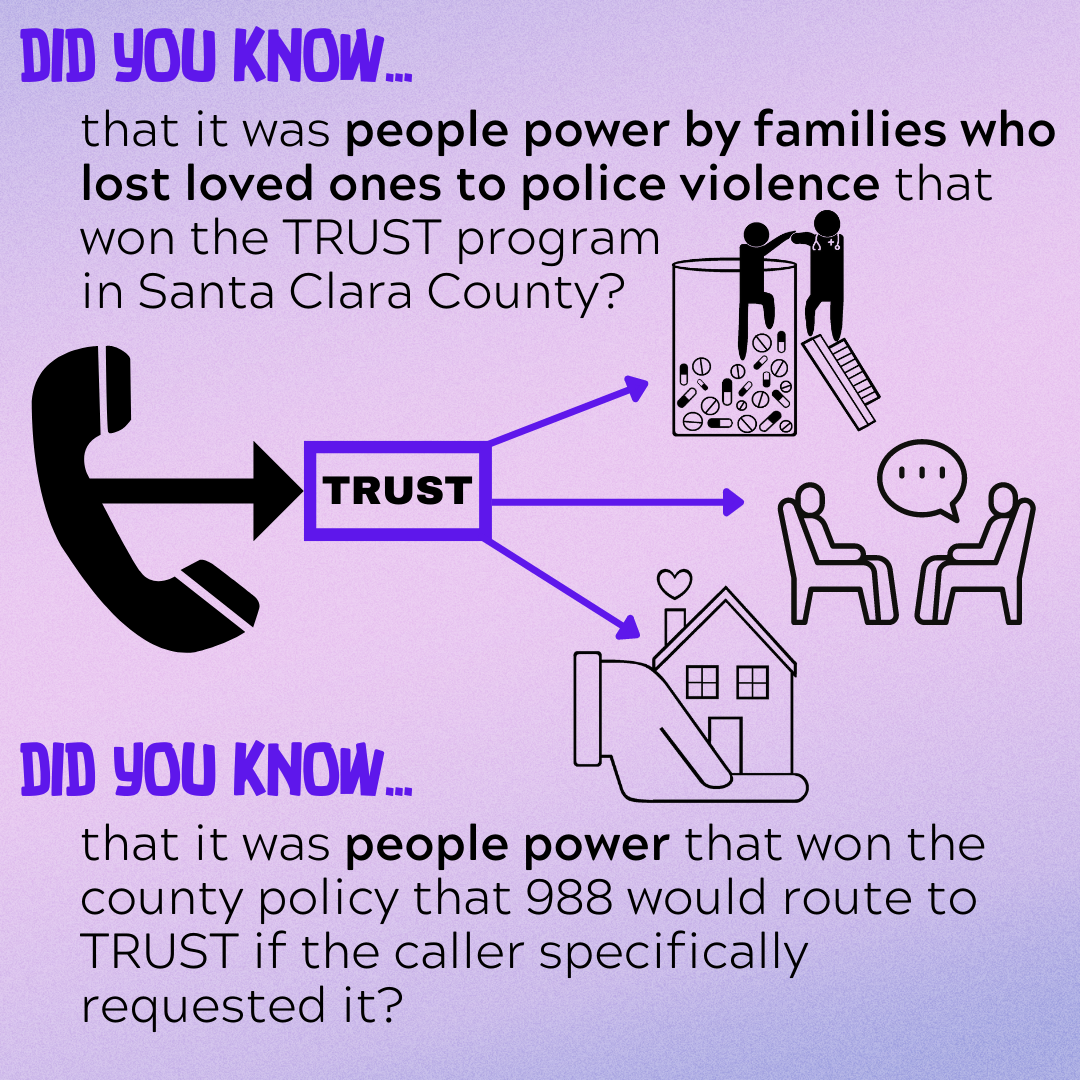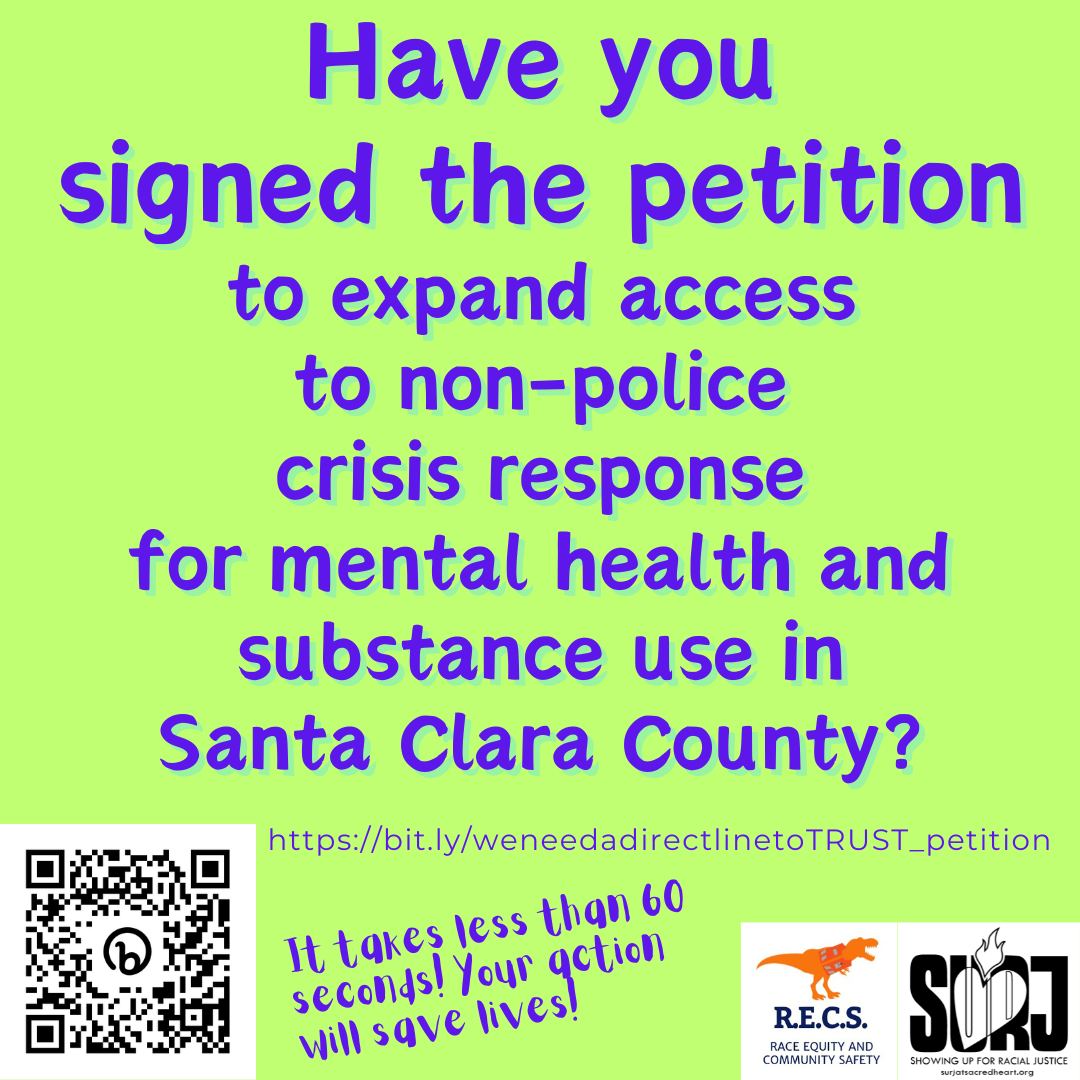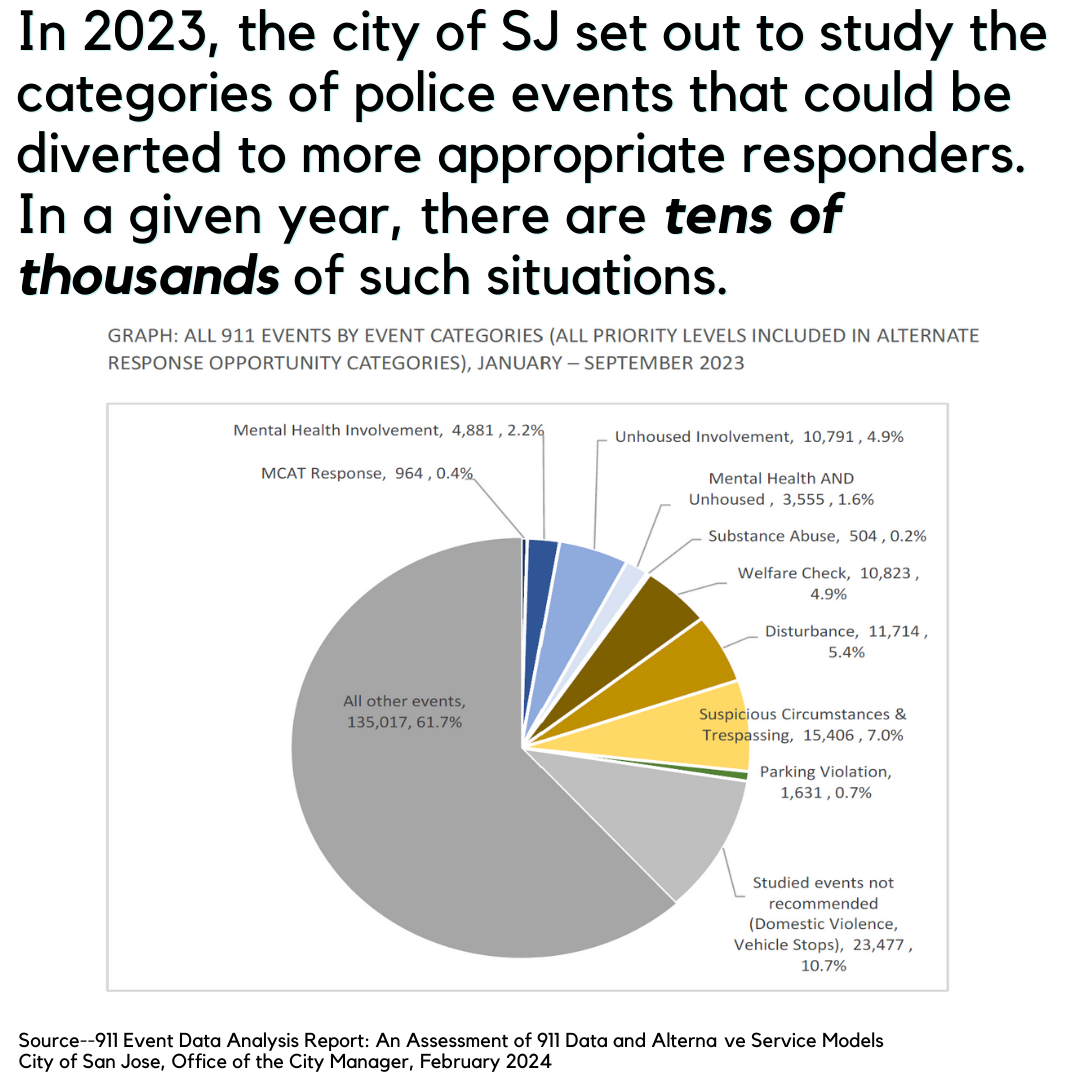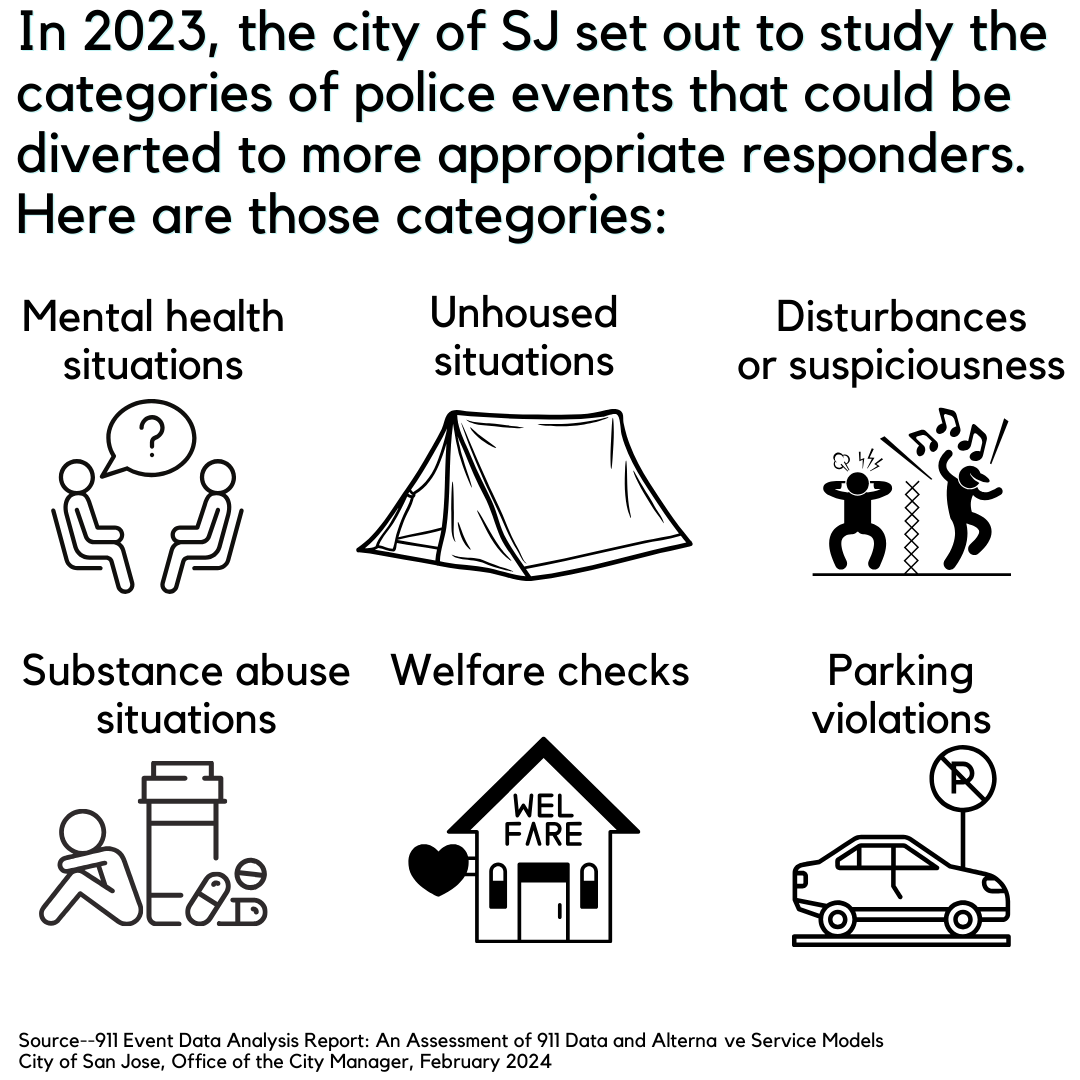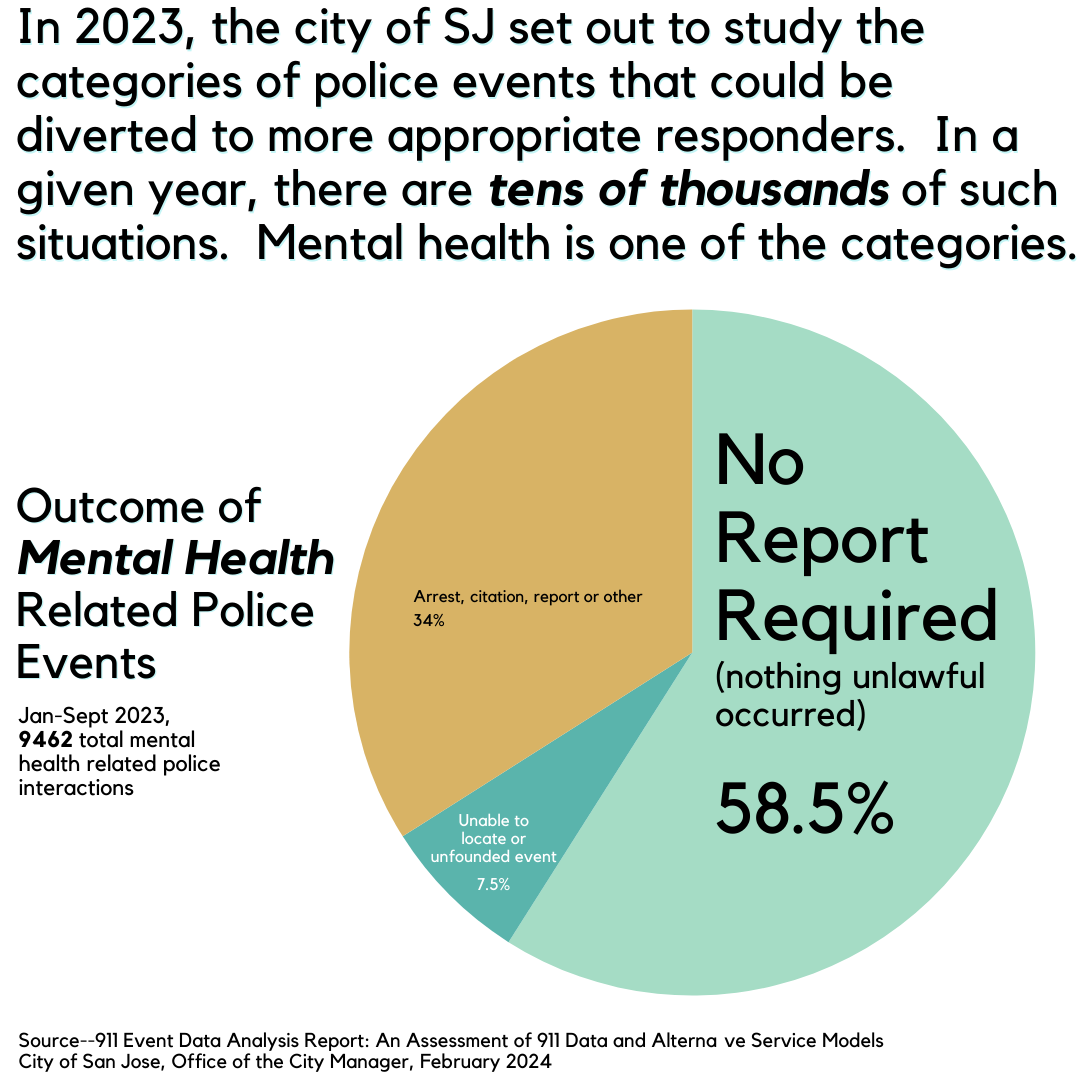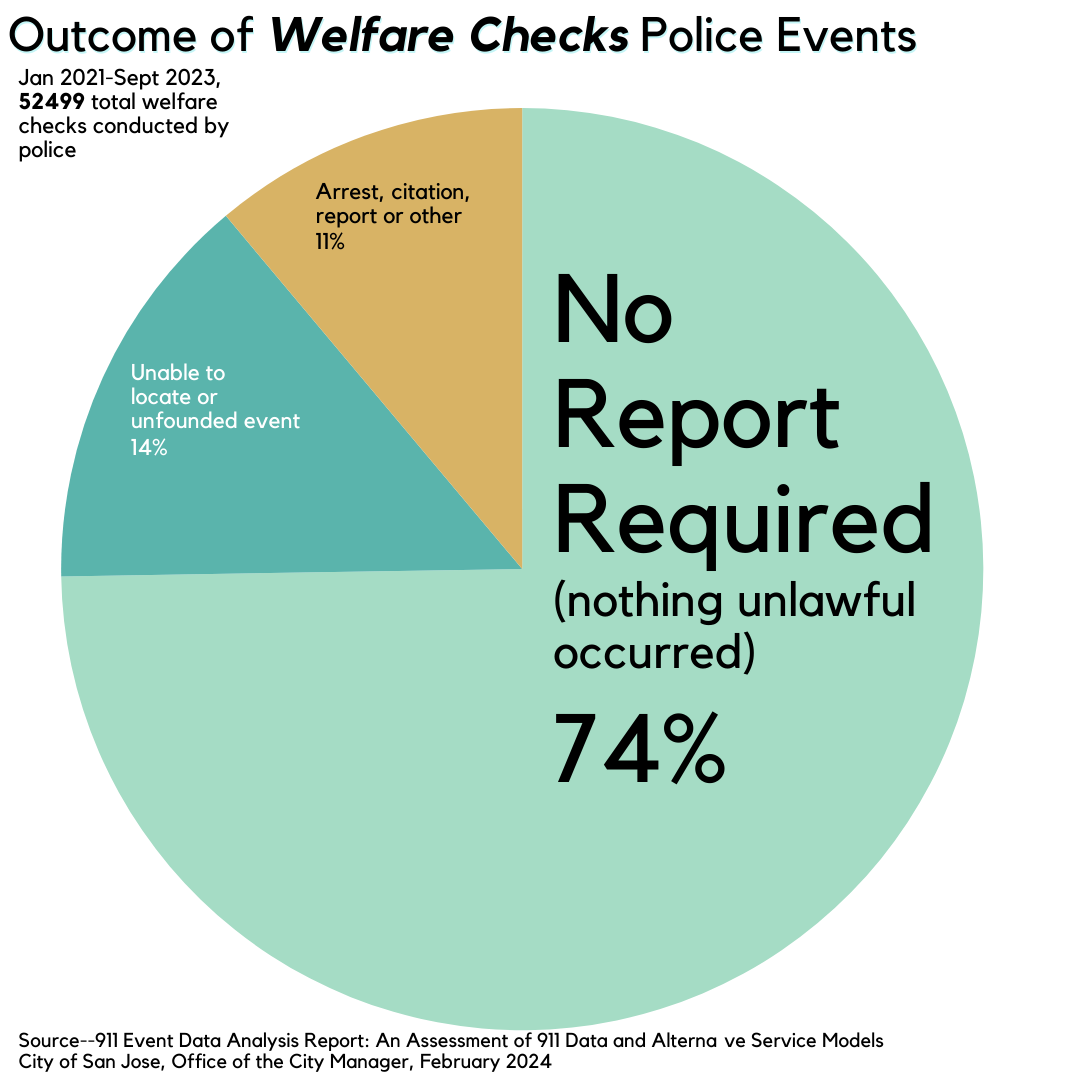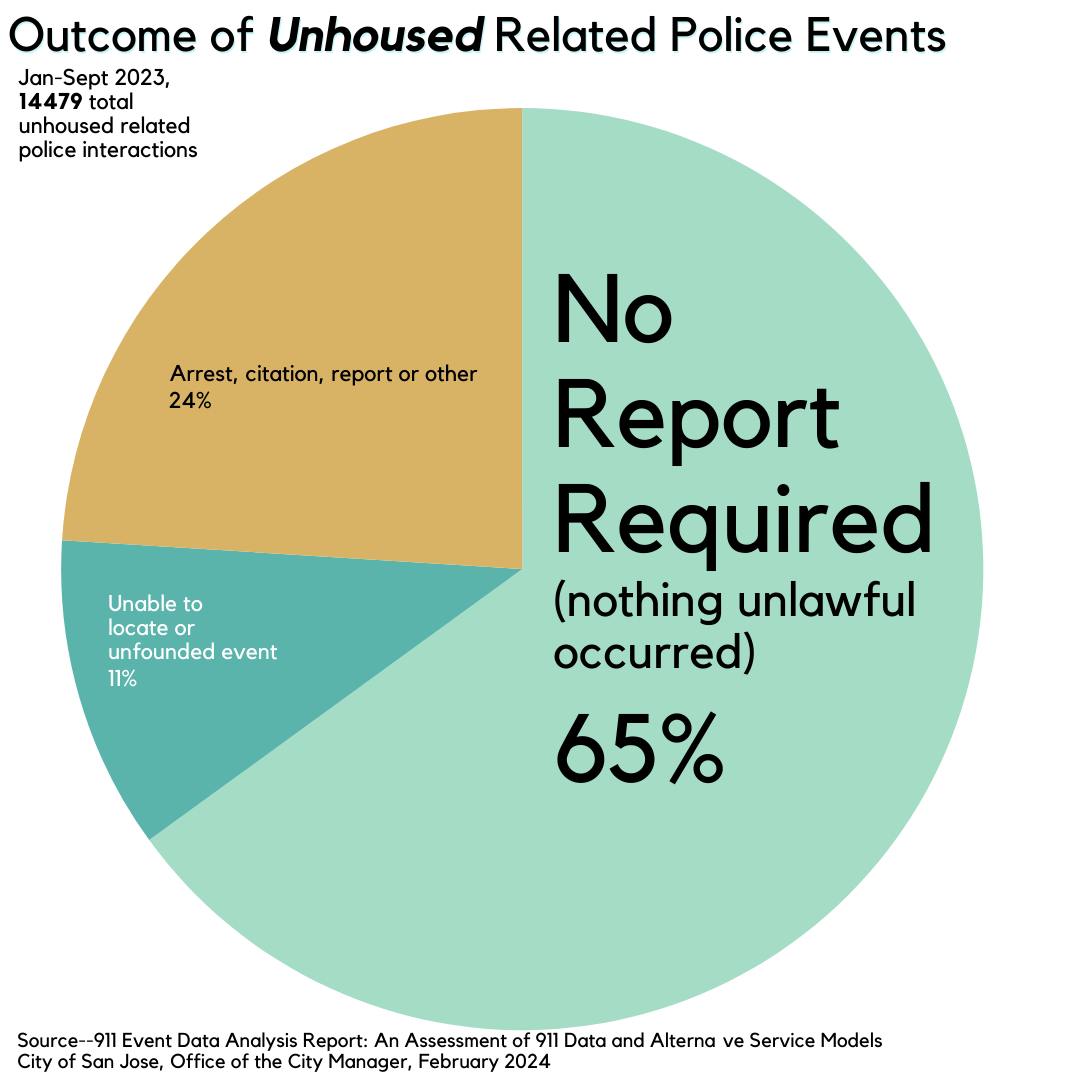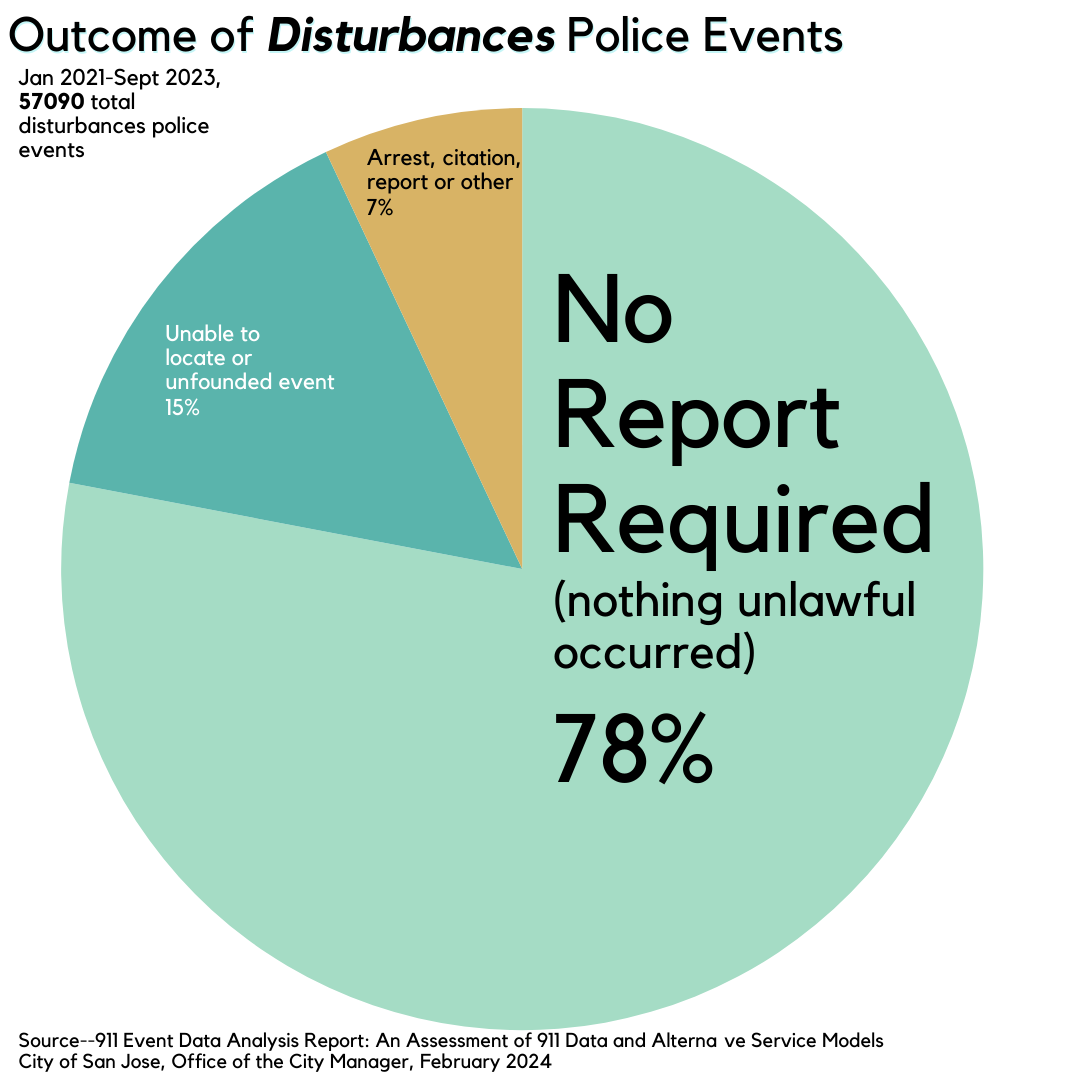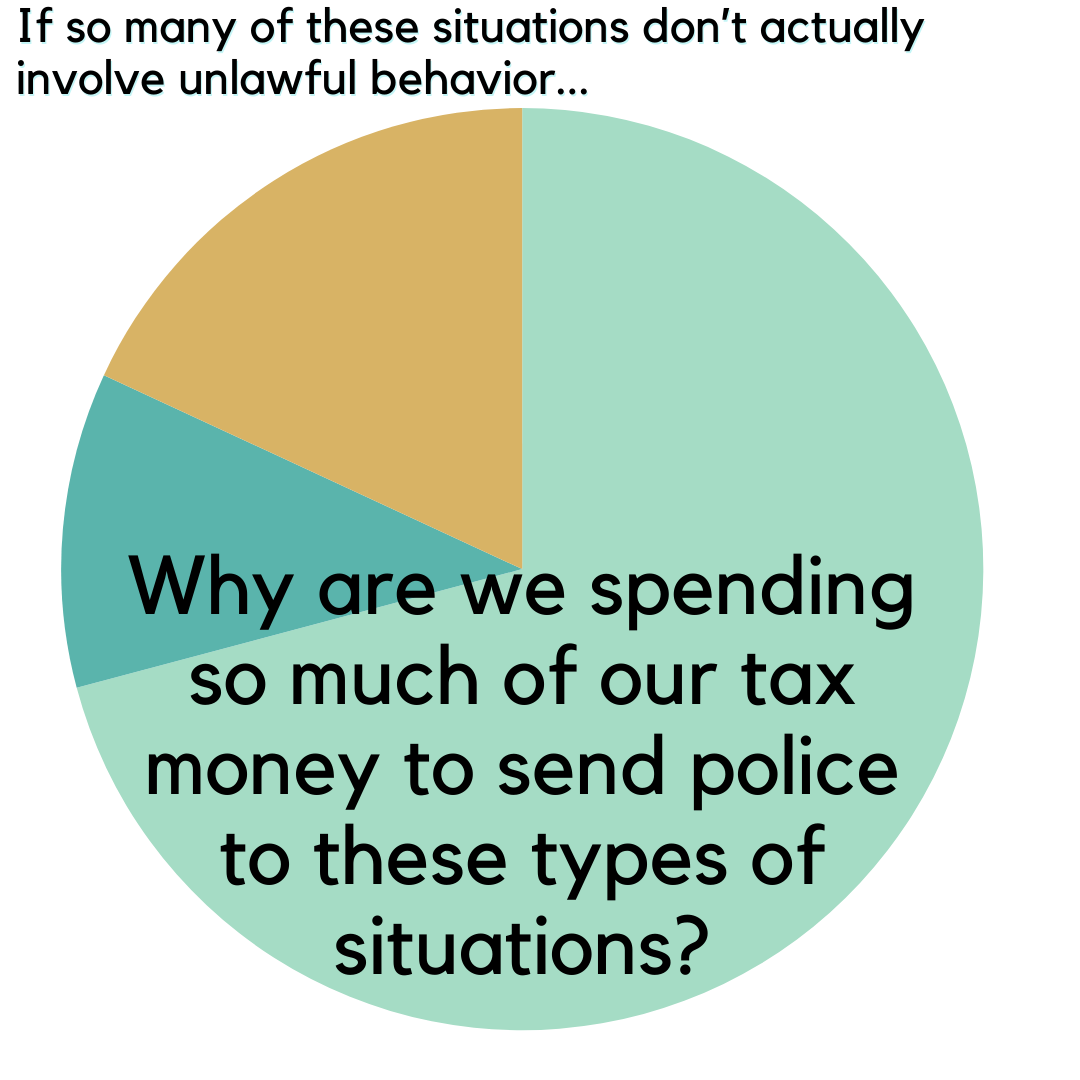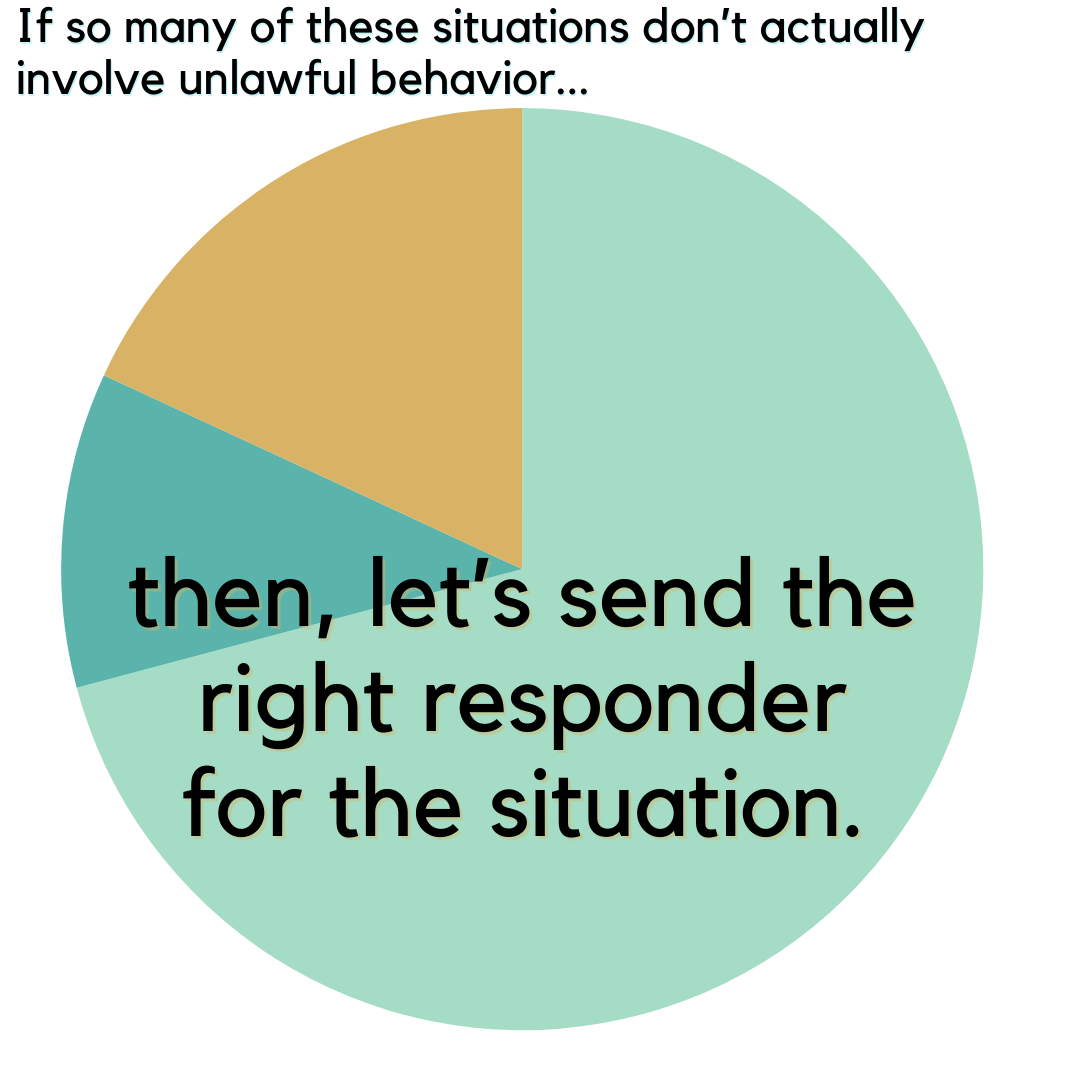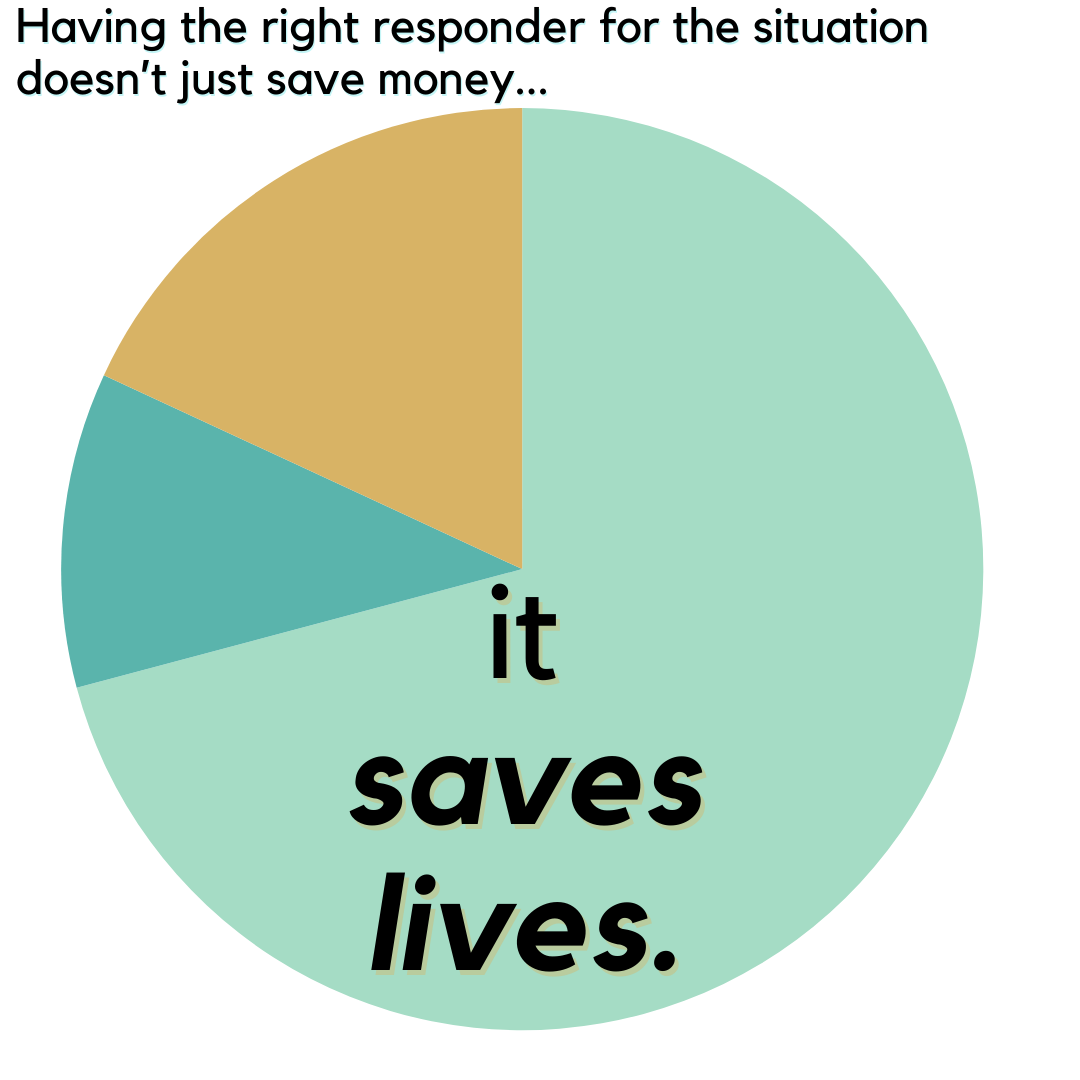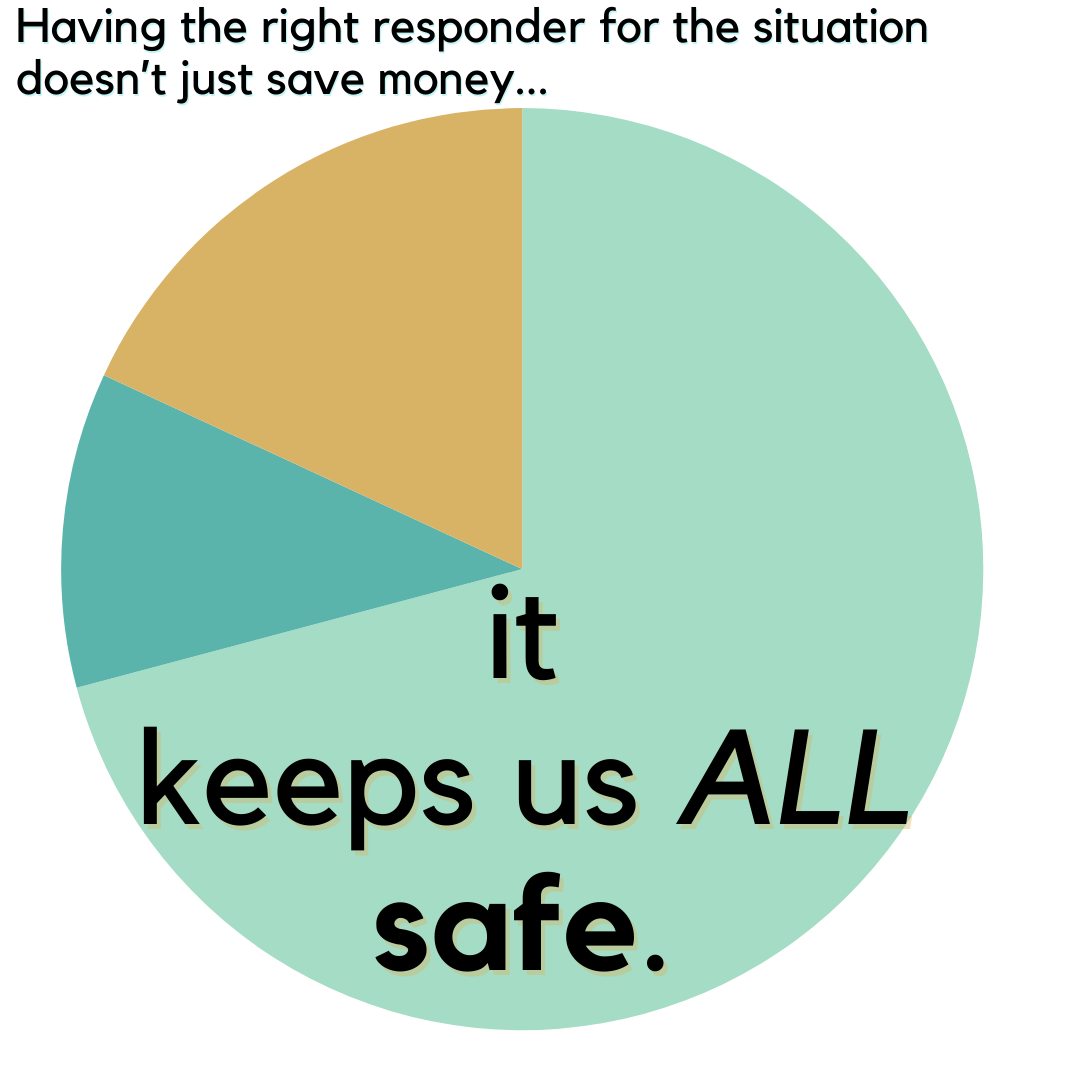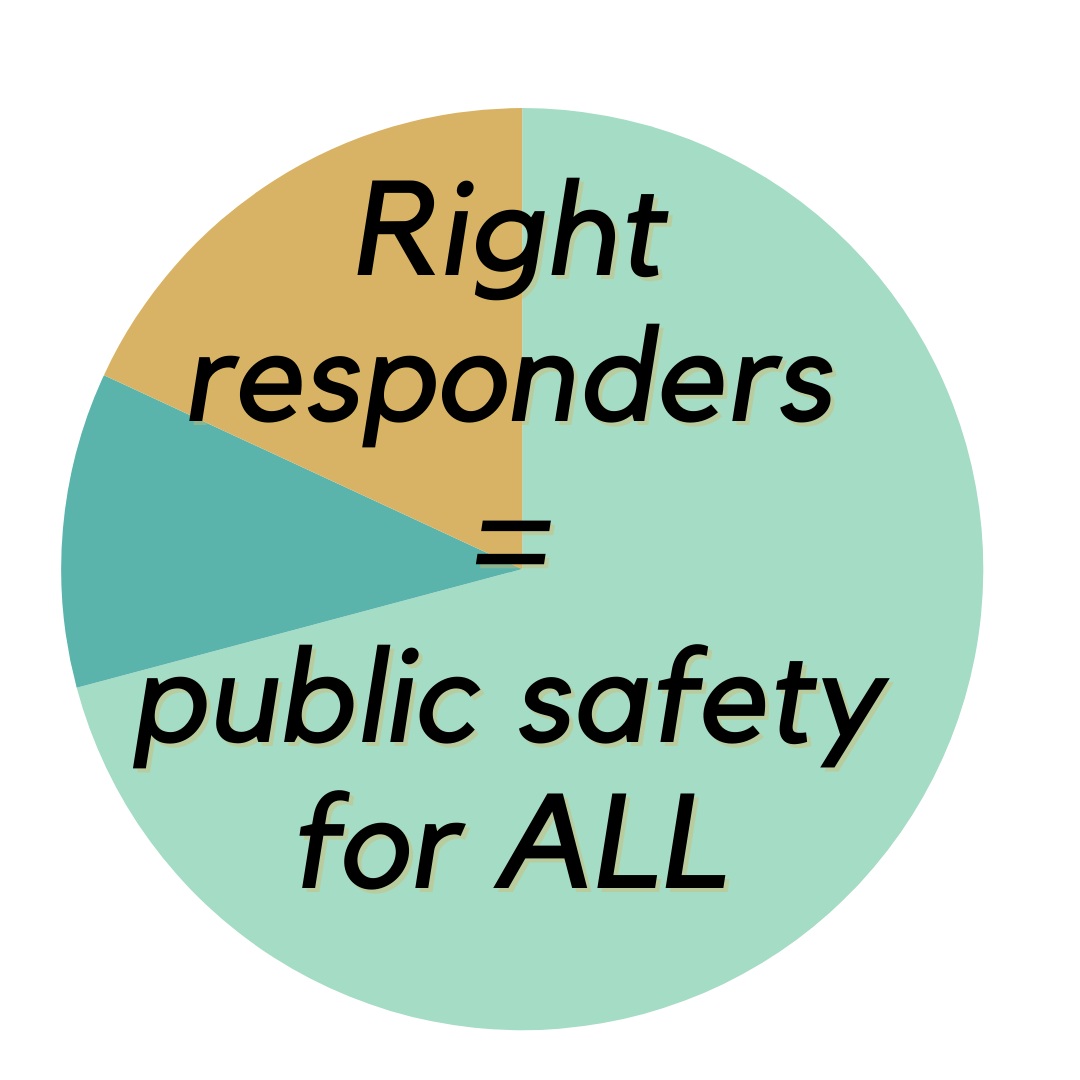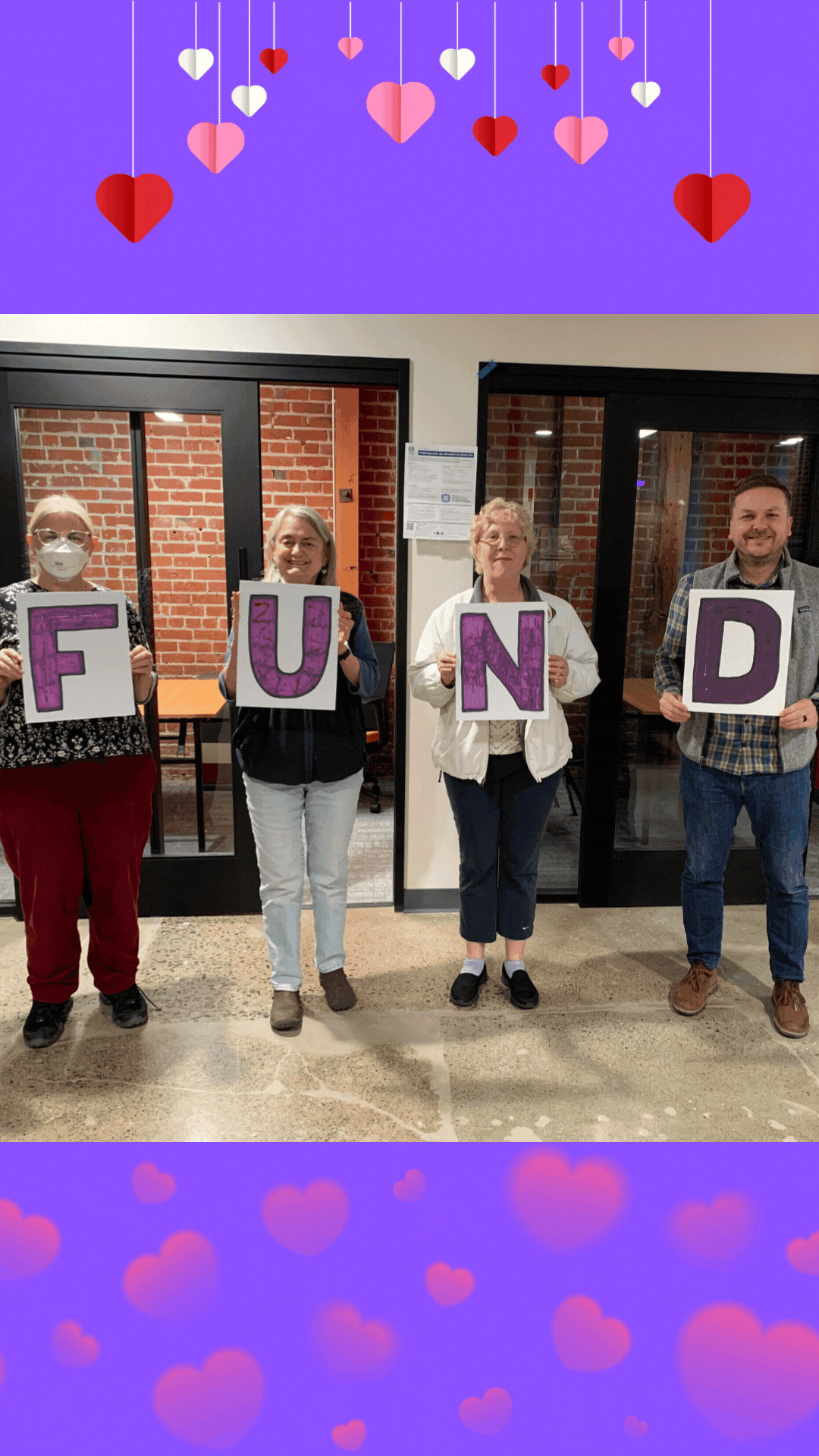The Trusted Response Urgent Support Team (TRUST) is about getting the right responder for the situation
What is the TRUST program?
The TRUST program is a 24/7 non-police crisis response program for urgent mental health and substance use situations. It includes both a call center with an emphasis on de-escalation and field teams that include:
- a crisis intervention specialist/mental health professional,
- a peer supporter and
- a first aid responder
The field teams are trained to respond to mental health crises, give trauma-informed care, focus on prevention, and center the client and their loved ones to resolve the crisis.
The TRUST program is good for all of us,
but especially our neighbors who are most vulnerable to police violence
How to Call
- Dial 408-596-7290 directly (save this in your phone) OR
- Dial 988 if calling from 408, 650, or 669 area codes
- Dial 800-704-0900 and press 1
- Then, make sure to ask for the TRUST team
Take Action to Expand TRUST
There are only 4 field teams for the entire county, and San Jose only has one. This is a good start, but it is not enough. We need double the field teams—including a second SJ team, a field team to cover east county and another to cover parts of south county north of Gilroy.
In December, thank to folks like YOU, we had a major campaign victory—we won a direct phone number to TRUST.
Families with Silicon Valley De-Bug who lost loved ones to police violence fought for and helped to design TRUST and being able to call TRUST directly was something they envisioned from the start. Instead the only access was through confusing phone menus and needing to remember to ask for TRUST directly. In December, we showed our people power and the supervisors voted to make a direct line to TRUST public. That number will go live in September.
But we didn’t stop there. We know that we need a lot more field teams to meet the behavioral health needs in our county. To put this into perspective, Los Angeles County already has 35 unarmed crisis response teams, is in the process this year of expanding to 70 and plans to expand to as many as 120 in the next several years. Once again, Santa Clara County only has four unarmed crisis response teams.
This is why members of Race Equity and Community Safety and Showing Up for Racial Justice fought for TRUST expansion in the city of San Jose—AND WON! In June 2024, the city voted to fund an additional 40 hour/week TRUST team to serve San Jose. This was a sea change in how the city thinks about public safety. And now we are turning back towards the county. We are pushing Santa Clara County to double the number of TRUST field teams, starting with east and south county. You can join this fight!
Caring crisis response is HERE
The time is NOW
Santa Clara County needs to hear from YOU
Your action will save lives
Sign the county petition for more TRUST field teams. Check the additional box if you want to get more involved.
Email the County Supervisors (directly, not cc’d)
Click on the email links below for a draft email; however, it is especially powerful if add a sentence or two about why expanding non-police crisis response matters to YOU personally. Not sure who your supervisor is? You can look up your own rep here
- Sylvia Arenas (D1), District1@bos.sccgov.org
- Betty Duong (D2), District.2@bos.sccgov.org
- Otto Lee (D3), supervisor.lee@bos.sccgov.org
- Susan Ellenberg (D4), supervisor.ellenberg@bos.sccgov.org
- Margaret Abe-Koga (D5), District.5@bos.sccgov.org
- Be sure to bcc: wehearyou@surjsantaclaracounty.orgCall your electeds with the same message in the draft email, and add your personal story.
SCC D1 Sylvia Arenas (408) 299-5010
SCC D2 Betty Duong (408) 299-5020
SCC D3 Otto Lee, Board Vice President (408) 299-5030
SCC D4 Susan Ellenberg, Board President (408) 299-5040
SCC D5 Margaret Abe-yoga (408) 299-5050
The Campaign for TRUST—Frequently Asked Questions
What does TRUST stand for?
Trusted Response Urgent Support Team
What is TRUST?
If you care about your community, you can call TRUST. It doesn’t need to be a dire emergency to call the number. It is a care-first rather than fail-first approach. It is a county program that provides 24/7 non-police crisis response for mental health and substance use issues. It includes a call center that help de-escalate crises and connect people with services. And the call center can also send out the TRUST Truck, with a trauma-informed field team. It is a non-police alternative to calling 911, in which you can be sure that people trained to respond to people experiencing mental health or addiction crises without escalating to violence.
Who is part of the TRUST field teams?
Each team includes:
A mental health professional
A peer supporter, with lived experience, and
A first aid responder
The field teams do NOT include law enforcement. The teams are specifically trained to handle mental health and addiction crises and provide responsive care without involving police.
Who pushed for the TRUST program?
The people who fought for and designed TRUST are families with Silicon Valley De-Bug whose loved ones were killed by police during mental health crises. These families continue to have oversight over the program through the TRUST Community Advisory Board.
How does the program work?
People get to the TRUST Call Center by asking for it directly when calling either 988 (if in the 408, 650 or 669 area codes) or 800-704-0900 and pressing 1. Once you get to the TRUST Call Center, they will talk to you on the phone to assess the situation. In ⅔ of the calls so far, the call center either de-escalate over the phone, connects you to resources, or calls the person back with follow-up support or resources. If the situation requires the TRUST field team to come, the call center will dispatch the TRUST truck. The field teams are trained to respond to mental health and addiction crises, give trauma-informed care, focus on prevention and center the client and their loved ones to resolve the crisis. The TRUST truck can also transport people to the Sobering Center, the Momentum crisis center for 23 hour stay, and mental health urgent care. The TRUST team will also schedule a follow up call within 48 hours for anyone who consents. They identify next steps and check in. In less than 2% of the calls, TRUST might refer to the county’s Mobile Crisis Response Team for 5150 holds or 911 for medical attention.
How did the TRUST program come about?
As discussed above, Silicon Valley De-Bug members whose loved ones were killed by police during mental health crises advocated for a crisis response program like this. It is funded using CA Mental Health Services Act money (a 1% tax on personal income over $1 million that was passed in 2004). It was launched in fall 2022, with three field teams–one for San Jose, one for North County and one for Gilroy. A fourth field team is being added for the west/north county.
What if you don’t speak English, can you still call TRUST?
The TRUST program has people on staff who speak Spanish and Vietnamese, and have a translation line with capacity for translating from 40+ languages.
What is 988 and how is it different than TRUST?
It is a national phone number that replaced the Suicide Hotline. Locally, it’s a one-stop shop for all mental health crisis services with and without law enforcement, including TRUST. It was launched in Santa Clara County in July 2022 and is run by the county behavioral health department. The dispatchers who answer the phones might be volunteers, and it is in their discretion whether to direct calls to police. We do know of incidents in which people who called 988 expected mental health professionals and cops showed up at the door instead and escalated the situation. The TRUST program was designed by Silicon Valley De-Bug families who lost loved ones to police violence and is run by community based organizations. The TRUST Call Center is answered by mental health professionals and is non-police crisis response.
Why is non-police crisis response important for mental health and addiction crises?
Police violence disproportionately harms people with signs of mental illness and/or disabilities. Police aren’t the right responders for folks struggling with mental illness or disability. Between one third and one half of people shot and killed by police in the U.S. have signs of mental illness or a disability. People with disabilities have an overall 43% chance of arrest, with a disproportionate risk falling on young Black men. Locally, a recent investigative report by the San Jose Mercury News, in collaboration with Stanford University and the California Report Project, of police records between 2014 and 2021 documented that over 70% of those seriously injured and killed by SJPD were impaired by either mental illness or substance use. The level of danger of police response for people in behavioral health crisis has already prompted one lawsuit in Washington DC alleging that police response for mental health is a violation of the Americans with Disabilities Act. TRUST is a core tool for public safety for all.
TRUST can save lives. We know that police violence disproportionately harms people of color. Black people are two times more likely to be killed by police “...even when there are no other obvious circumstances during the encounter that would make the use of deadly force reasonable” (Fagan and Campbell, 2020). So expanding civilian crisis response options like TRUST is a way to make sure that EVERYONE in our community is safe, with no exceptions.
We should treat mental illness and substance abuse like the public health crises they are. TRUST professionals on the line will talk to you over the phone to assess the situation. TRUST has been successful in de-escalating behavioral health crises. Their field teams are trained to focus on prevention and center the client, and their loved ones, to resolve the crisis and/or transport people to services. Roughly ⅔ of calls are resolved over the phone. If the situation requires, the call center will dispatch the TRUST van, which can transport people to places like mental health urgent care, the Sobering Center of the Momentum center for 23 hour stays. Less than 1% of TRUST calls result in police presence.
How is expanding non-police crisis response good for ALL of us?
A national survey of sheriffs and police departments found that “21% of total law enforcement staff time was used to respond to and transport individuals with mental illness in 2017.” Sending the right responder to behavioral health situations instead will save money, because using police is much more costly both in money and harm. Defaulting to police to respond to every single social problem does not work and it doesn’t make sense. The City of San Jose recently conducted an analysis of three years worth of police interactions to see if there were categories of interactions appropriate for alternative responders. This analysis documented that there are thousands of behavioral health-related police interactions that could and should be responded to by alternate responders, especially mental health, substance abuse, and unhoused events and welfare checks. In 2023, only 0.4% of the events studied got alternate response (co-response from MCAT), 27% of the events (59,305 events total!) *could* receive alternate (or co-)response in staff’s perspective. Of police interactions in these categories, the report found that in a vast majority of them “No report” is the outcome—this means nothing criminal was occurring to trigger the need for report, and thus there was no reason for police to be there in the first place.That is why the report declared that “since mental health related events often do not involve violence or a crime in progress, they can be effectively handled by mental health clinicians, EMTs or peer support specialists who have training in de-escalation” (p. 23).
However, SJ city staff also observed that “The current capacity of these programs [programs like TRUST] is limited, however, and are not sufficient to respond to the full range of San Jose 911 events that may be suitable for an alternative or co-response” (p. 14).
Civilian crisis response is the optimal response for behavioral health crises. Data from Los Angeles County shows that over time, co-responder teams with police are “significantly more costly, while not as effective, as civilian teams that are comprised of a BH [Behavioral Health] clinician and a peer support specialist” (p. 35). That is the TRUST model. The Substance Abuse and Mental Health Services Administration’s national guidelines for behavioral health crisis response also recommend that mobile crisis teams should incorporate peers but avoid law enforcement accompaniment in most circumstances, so TRUST is in line with federal best practices for behavioral health crisis response Research on other regions that has documented that civilian crisis response for behavioral health saves money over the long term. Per call, the cost of alternate crisis response is considerably cheaper than police response.
Graphics to Share
Learn more, and help spread the word about this important resource!
Click on any of the graphics to expand. Right click to save and post.

